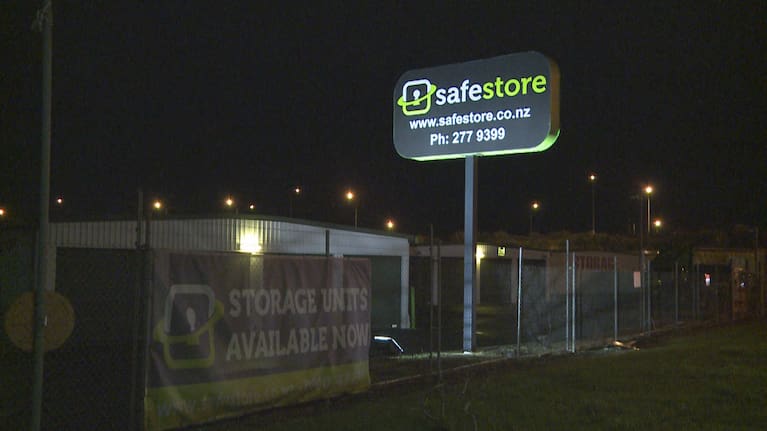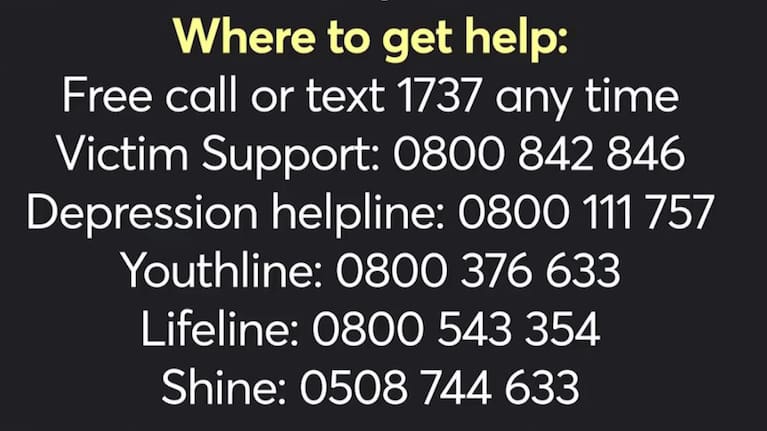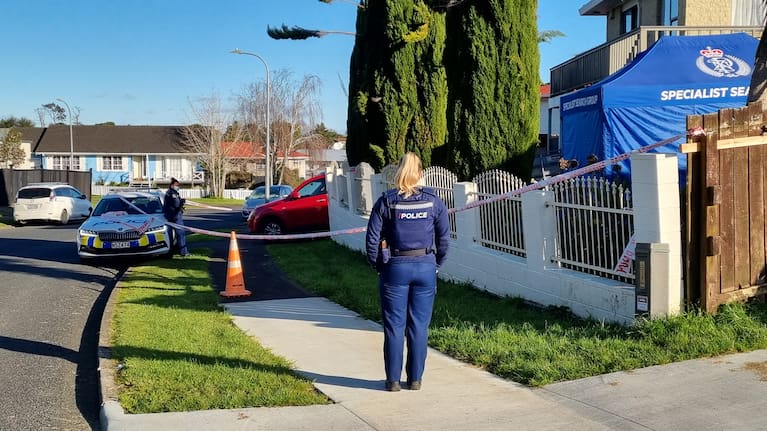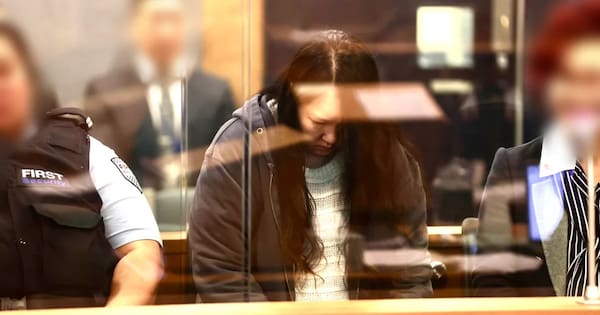A jury has been told traces of an antidepressant drug was found in the bodies of two children who it is alleged were killed by their mother, and left in suitcases in a storage unit in Auckland.
Warning: This story discusses self-harm.
The trial of Hakyung Lee has opened in the High Court at Auckland on Tuesday, with openings from both the Crown and the defence – with Lee representing herself, but assisted by two lawyers.
The bodies of Minu Jo and Yuna Jo, aged six and eight at the time of their deaths, were found nearly four years after they were killed and were discovered in suitcases after a family bought the contents of an abandoned storage locker in an Auckland auction.
Crown prosecutor Natalie Walker’s opening to the jury took them back to August 1, 2022, when a Clendon couple won an auction of the storage locker’s contents containing furniture and whiteware – only to discover the body of a clothed child after opening a foul-smelling suitcase.

Walker said the deaths of the children would not have been discovered had Lee not run into financial problems and stopped paying for the storage, leading to its auction.
The Crown’s case is that Lee had killed the children in the middle of 2018, about seven months after her husband died of cancer.
A toxicology test of the children found there was a presence of an antidepressant drug in their bodies.
Walker said the pathologist concluded that they died by homicide of unspecified means associated with an antidepressant drug, but could not be certain whether the children died from it or whether they were incapacitated by the drug, and killed by other means.
The levels of the drug inside their bodies also could not be determined due to the passage of time.
The court heard that Lee was prescribed 60 Nortryptoline tablets in August 2017, after telling her GP that she struggled with sleeping.
Walker said Lee accepted having caused the children’s deaths and putting their remains in the suitcases in the storage unit, but the jury’s task would be to decide whether she was insane at the time the children were killed.
She argued that Lee’s actions following the deaths of her children – including hiring a storage unit, moving the bodies, changing her name, and returning to Korea in late July 2018 flying business class – showed that these were the actions of someone who knew what they were doing, and who knew that it was wrong.
Stand-by counsel Lorraine Smith, who is assisting Lee in her self-representation, told jurors the loss of her husband in 2017 drove Lee to insanity.
“At the time Hakyung Lee killed her children, was she sane or was she insane?” she asked jurors.
“On behalf of Ms Lee, it will be submitted that at the time she killed her children, she was insane and this should be the verdict in this case,” Smith said.
“She has killed her children, but she is not guilty of murder, by reason of insanity.”
Smith said Lee’s “descent into madness” began when she lost her husband to cancer in November 2017, and became increasingly isolated and suicidal in the months following.
“She did not want to leave Minu and Yuna behind to face an unhappy and parentless future, and in her fractured, distorted and mentally unwell frame of mind, she believed it was best if they all died together,” said Smith.
Smith said Lee moved to New Zealand with her parents when she was 13, and returned to Korea for university after she lost her father at the age of about 18.
Lee later returned to New Zealand to do study hospitality, and eventually met her husband at church.
The pair married in 2006 – her husband Ian Jo worked as a supervisor at Auckland Airport while Lee looked after the children.
The Crown earlier told jurors that Lee had told her mother that if her husband dies, she will die too – she’d also told her mother that she’d use up all the money and die with the children together.

Crown prosecutor Natalie Walker had described to jurors a timeline for several expensive holidays that Lee took with her children in the months leading up to their deaths, and while hiding the fact of their father’s death from them.
The court heard that Lee took the children to Korea a month after their father’s death and stayed in five star hotels – spending $32,000 on the two-month trip.
In April 2018, spending data showed Lee had stayed at a Hilton Hotel in Taupō and went to the hot springs.
In May, she’d taken her children on a trip to the Gold Coast and stayed at another Hilton.
Walker said the last trip she took the children on was to Queenstown in mid-June 2018, where they spent money at a Hilton Hotel and restaurants.
Crown: ‘Best evidence’ through children’s PlayStation

Playing Minecraft on a PlayStation may have been one of the last activities of Minu Jo and Yuna Jo before being killed by their mother, Walker told jurors.
An analysis of the data extracted from the PlayStation showed that the most recent user data activitity were from “Hero Minu” and “Princess Yuna 35” on June 27, 2018.
“At 10.53, Hero Minu had a Minecraft trophy set updated, and at 12.07pm on the same day, Princess Yuna 35 also had a Minecraft trophy set updated. A trophy set or a trophy for those of you who don’t know – I didn’t – is an achievement that’s earned during gameplay,” Walker told jurors.
She said it was only possible to access the data for the last game played.
Walker said as insignificant as this may seem, the PlayStation evidence that would be presented in the trial may be the “best evidence” of the final activities carried out by the children that Wednesday before they were killed.
The last time the children were seen in person by family members was on April 26, 2018.

